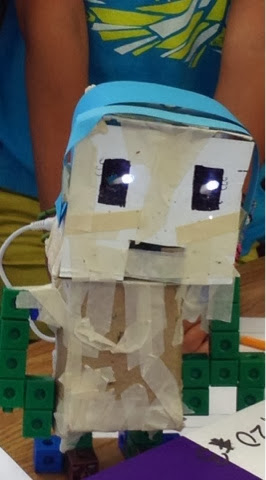Before break, there was mid-year testing. It is computerized so we get immediate results, but we don't really know what was tested and what the questions were. We just have to have faith that it is a valid instrument, a valid way of showing growth. But I am of little faith in these things. Oh me, of little faith.
Results? I'm disappointed. Depressed, even, if I stop to let it affect me. I shake it off. The reports don't give me much information except their scores and whether or not they passed certain standards. On the one hand, I can say that our students are lacking pre-requisite skills to be ready for these new standards. This gap in their learning is to be expected. On the other hand, it still feels terrible.
I have been tracking their progress in class. I know their skills have improved. Most of them are better at solving a long division problem than they are at estimating. I am not okay with that because it means they don't really have conceptual understanding. But, at least they can divide now. Many of them. If I just look at their work in class, I feel more successful. But somehow it didn't transfer in the test-taking situation. I am willing to change my practice so that students think critically, understand conceptually, even learn to enjoy math. But I am not willing to change my practice with the intent to do well on tests.
I have heard this line of thinking that if students are engaged, and your teaching strategies are sound, then students will do well on tests. I disagree. My life as a teacher is about negotiating this tension. Can we just teach? No, because now we have to be publicly accountable. Our lives and our careers will be based on how well our students do on these standardized tests. Even if it's only 25% of our total evaluation score, there's a psychological effect that makes it feel like 100%.
What can I do? Pause. Reflect. Decide. Imua. I need to re-commit to engaging, meaningful lessons in which students can work cooperatively with each other and get something out of it even if they are at different levels. I will find ways to pull aside students who need extra help. I will find ways to challenge students who need to move ahead. I will maintain high standards in terms of critical thinking over rote learning. If I can keep that focus, and not mope about test scores, I will be able to get through the year.



